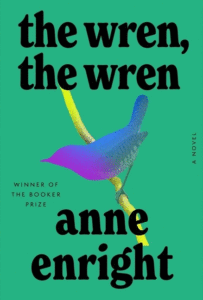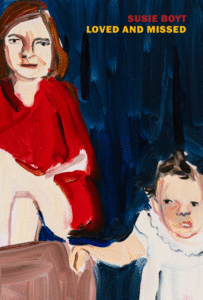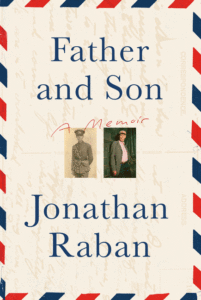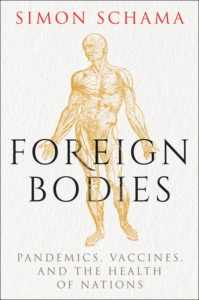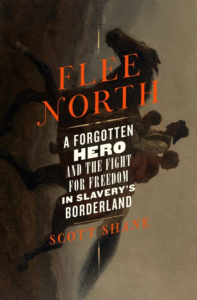
What Should You Read Next? Here Are the Best Reviewed Books of the Week
Featuring New Titles by Anne Enright, Jonathan Raban, Daniel Mason, and More

Anne Enright’s The Wren, the Wren, Jonathan Raban’s Father and Son, and Daniel Mason’s North Woods all feature among the Best Reviewed Books of the Week.
Brought to you by Book Marks, Lit Hub’s “Rotten Tomatoes for books.”
*
1. The Wren, the Wren by Anne Enright
(W. W. Norton & Company)
15 Rave • 2 Positive
Read an interview with Anne Enright here
“So convincingly has Ms. Enright conjured the archetype of the wandering Irish bard who leaves behind him a legacy of abandoned women and melodious, honey-tongued verse … Is it possible for poems to be fictitious? In fact, these nostalgic odes to love and Ireland are limpid, lilting, wholly credible stand-alone works … One of Ms. Enright’s remarkable feats is to write believably across three generations, capturing epochal differences but also a buried, or even repressed, continuity. The fullness of Ms. Enright’s talent is reflected as well in her treatment of what has come to be known, a bit glibly, as the ‘art monster.’”
–Sam Sacks (The Wall Street Journal)
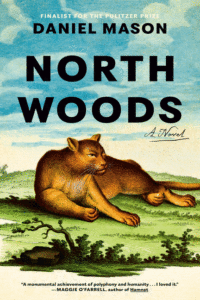
2. North Woods by Daniel Mason
(Random House)
14 Rave • 2 Mixed
“Haunting, haunted … The literary gods are inscrutable—the book club overlords even more so—but I’m praying you’ll consider getting lost in North Woods this fall. Elegantly designed with photos and illustrations, this is a time-spanning, genre-blurring work of storytelling magic … Mason isn’t just passively watching the evolution of this site in the forest. Each chapter germinates its own form while sending out tendrils that entwine beneath the surface of the novel … Revelatory.”
–Ron Charles (The Washington Post)
3. Loved and Missed by Susie Boyt
(New York Review of Books)
7 Rave • 3 Positive
“Always witty and unexpected…she has a clear perception of the passion, pain and particularities of female existence … The novel’s ending is unexpectedly positive. Who would have thought that a story about drug addiction and self-destruction would leave its reader feeling optimistic?”
–Amanda Craig (The Spectator)
**
1. Father and Son: A Memoir by Jonathan Raban
(Knopf)
5 Rave • 4 Positive • 2 Mixed
“Offers a final reckoning (Raban died in January this year), less egotistical, more rueful, informed by a catastrophic sense of the damage that can come one’s way. Raban is far too good a writer to make the parallel blunt, but the stroke is his war, and from the perspective of a wheelchair-bound hemiplegic he sees his father differently … A fine achievement, a wide-ranging and compelling account with the author’s hallmarks of intelligence, erudition, humor and honesty.”
–Norma Clarke (Times Literary Supplement)
2. Foreign Bodies: Pandemics, Vaccines, and the Health of Nations by Simon Schama
(Ecco)
3 Rave • 6 Positive • 1 Mixed
Read an excerpt from Foreign Bodies here
“Eloquent, discursive … Schama wisely avoids reportage, which is still evolving, and leans, instead, into the past, crafting a play in three acts: smallpox, cholera and bubonic plague … Casts familiar and lesser-known figures in a fresh light … Sterling cultural history, but it also reminds us that political concerns mold our choices as future pandemics brew.”
–Hamilton Cain (The Star Tribune)
3. Flee North: A Forgotten Hero and the Fight for Freedom in Slavery’s Borderland by Scott Shane
(Celadon Books)
6 Rave • 1 Positive
“Combin[es] the best elements of rigorously researched history and thrilling narrative … A gripping story told at a brisk pace in the no-fuss prose of a practiced reporter, is a model of the advantages that journalists can bring to the writing of history … Only occasionally in this otherwise excellent book do some of Shane’s more editorializing comments grate … The kind of story we sorely need at a time when there is no shortage of opportunities for inspiring acts of heroism.”
–Richard Kreitner (The Washington Post)
Book Marks
Visit Book Marks, Lit Hub's home for book reviews, at https://bookmarks.reviews/ or on social media at @bookmarksreads.









